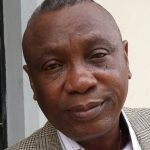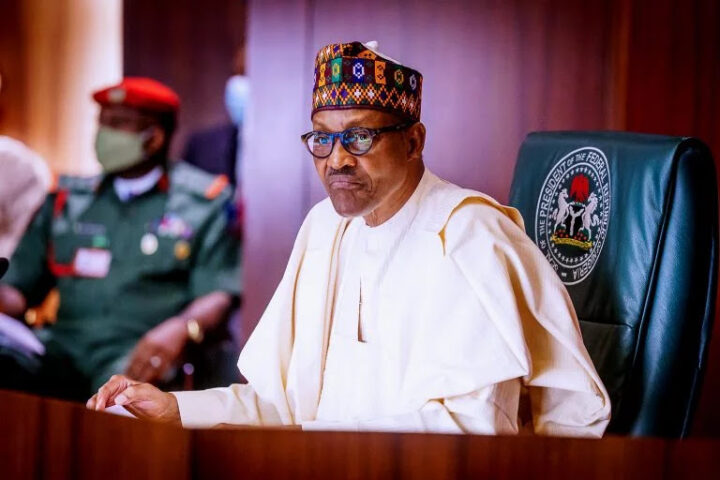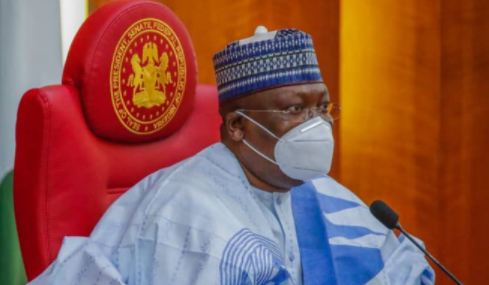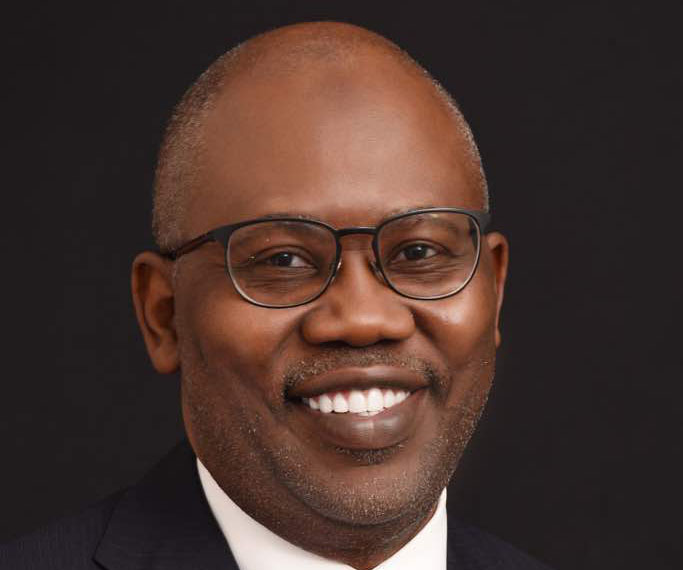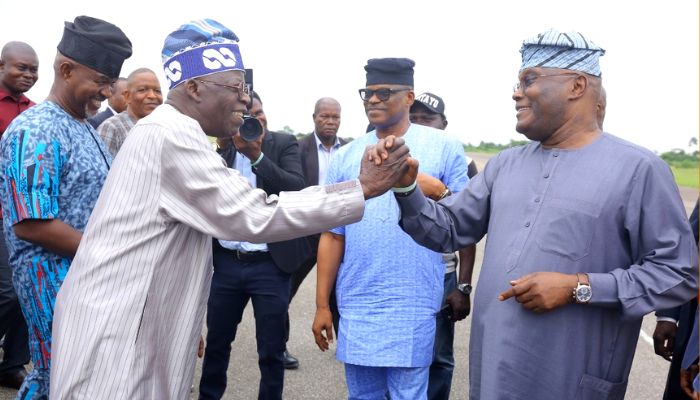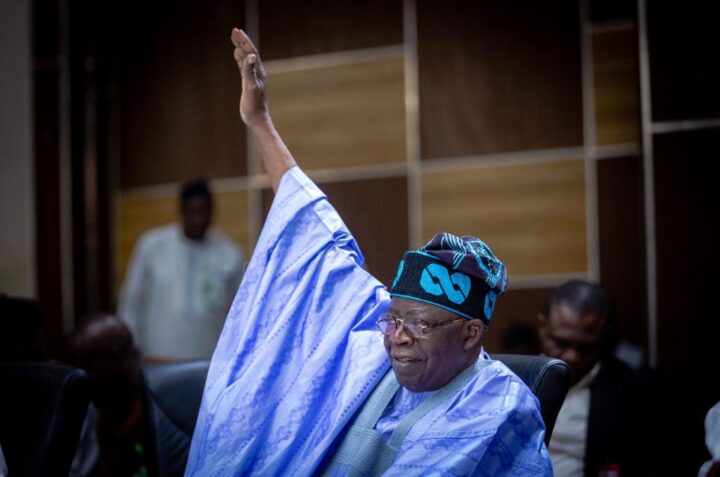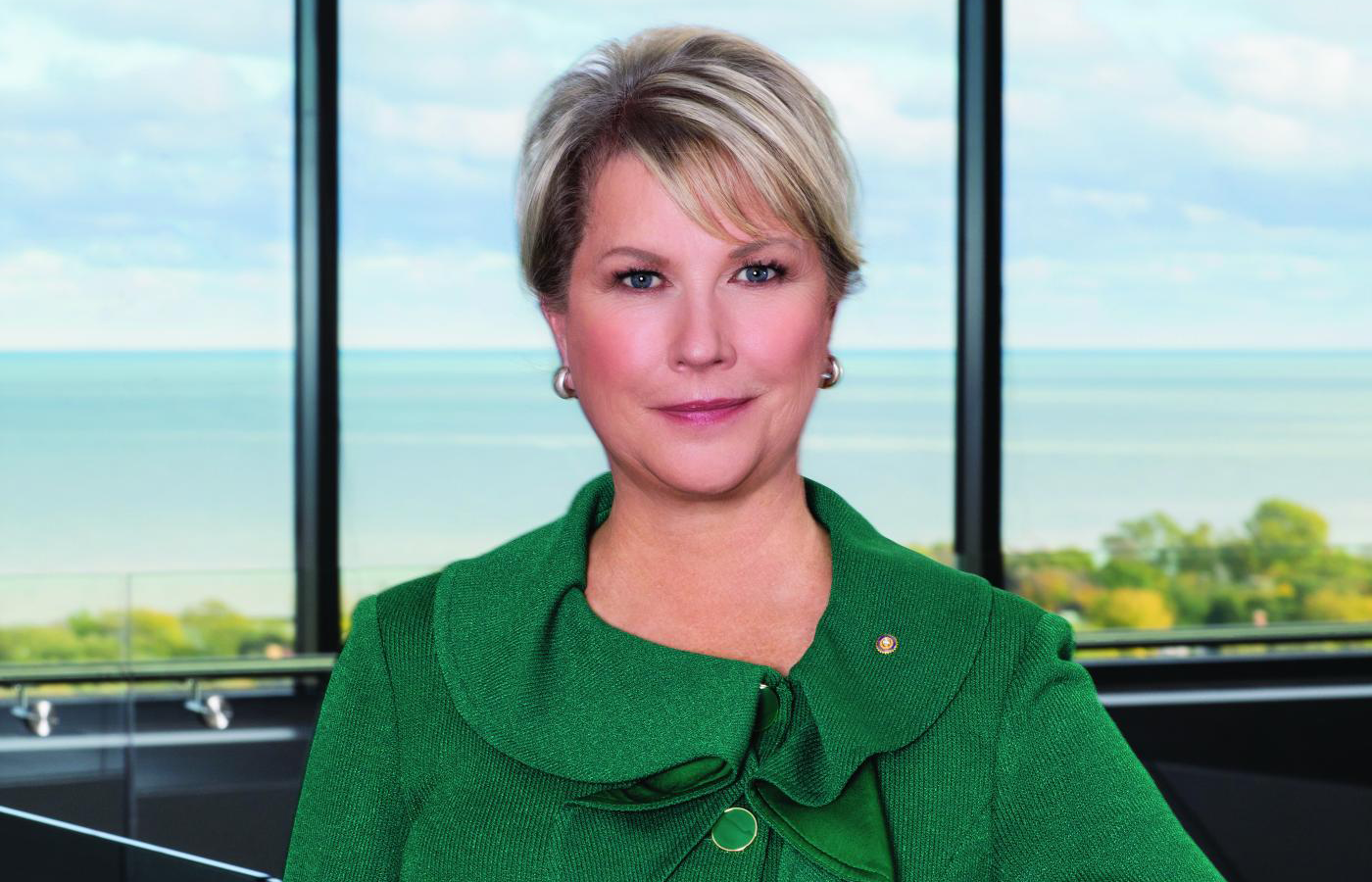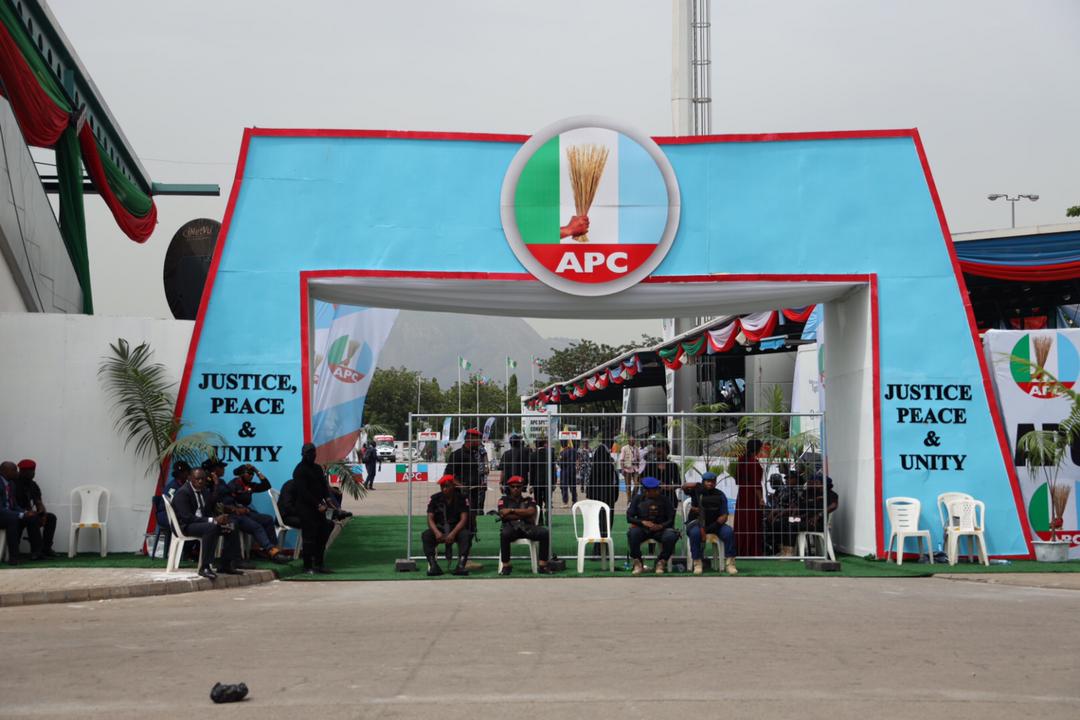With the selection of the presidential flag bearers by the various political parties for next year’s election, the era of lame duck, especially in the central government is here. The term lame-duck refers to when a person in power has entered the final stages of their tenure, and the chosen successor has been elected or soon will be. Lame-duck became the term used to describe politicians, especially the president, who either lost an election or decided to forgo reelection.
For some time, we have been witnessing a weak presidency, but it is likely going to get worse now. What is about to happen is the deconstruction of the imperial presidency. Nothing humbles a man or a woman who has been in power to realize suddenly that he or she has to lose the power. Exit date humbles any government official and that is why they say power is transient. We have nothing that is really our own; we hold everything as a loan. The bad news is that nothing lasts forever. The good news is that nothing lasts forever too. People and things will come and go. Everything in this life is transient. Weak men create hard times. Weakness invites aggression.
A leader with excessive weakness can be a danger to democracy. He can even split the country with indecision and failure to act. We need dynamic leadership with initiative. The danger of weak leadership is that you do not really know who is in charge. Hence we hear of a cabal ruling the country. The emergence of a ruling cabal is a failure of leadership.
The lame-duck era will create more confusion for us and it will be like a government on holiday. Henceforth, the spotlight will shift from the Villa to the campaign field. The presidential flag bearers will make more news than the Villa. It will affect the political parties too.
Advertisement
In a presidential system of government, the presidential candidate is the leader of the party. The political parties will have fewer roles to play during the campaign. The chairman of the political parties and the party headquarters will be mere passengers in the political drive. In some instances, the flag bearers will undermine the power and influence of the political parties.
In our own case, ministers, special advisers, and special assistants will be thinking of their own future since all of them will go with the president next year. In this case, fewer appointments will be made and the era of an imperial presidency is coming to an end. It is a very interesting time we are about to witness.
I have witnessed the era of lame-duck twice. The first time was during the last six months of General Abdusalam Abubakar (80), GCFR, between 1998 and 1999. The second time was the last six months of President Olusegun Obasanjo (85), GCFR, during which President Umaru Musa Yar’adua was elected at the PDP presidential election in December 2006. On those two occasions, I saw power fading from those in authority. Suddenly those who wielded enormous power before became human to the extent that they were answering telephone calls and receiving telephone calls by themselves instead of through secretaries. Suddenly they were contacting old friends knowing that they will soon be out of power.
Advertisement
During the lame duck era of General Abdusalam Abubakar, he only concentrated on the construction of the Eagle Square, the National Assembly building and devoted much of his time to the transition programme. He dispatched his then secretary to the government of the federation, Alhaji Gidado Idris, to South Africa and East Africa to sell his transition programme to the leaders of that region. I accompanied Alhaji Gidado Idris on the trips. We met the then South African president, Nelson Mandela in Pretoria and Johannesburg. Present at the meetings with President Mandela was the then Nigeria ambassador to South Africa, Alhaji Shehu Othman Malami, Sarkin Worno in Sokoto state and former chairman of Union Bank, who was not only a friend to President Mandela and also part of his household. He constantly referred to him as Shehu while Malami referred to President Mandela as Madiba. No doubt President Mandela was very much fond of Alhaji Malami. The affinity between the two men was very strong.
In the various meetings, President Mandela always referred to General Obasanjo as my “friend”. He was consoled when Alhaji Gidado told him that General Obasanjo was among those vying for the presidency and his chances of becoming president were bright. From South Africa, we moved to Kampala, Uganda where we met President Yoweri Kaguta Museveni. We also met President Daniel Arap Moi in Kenya as well as the Namibian president, Samuel Shafiishuna Daniel Nujoma. During the two weeks tour, we met President Benjamin Mkpa of Tanzania. That was when Nigeria was like a colossus in Africa.
The lame-duck era is when ministers rush memos to the cabinet secretariat for approval by the federal executive council. During the lame-duck era of General Abdusalam, the cabinet secretariat was the centre of activities. Day and night members of the cabinet secretariat were receiving memos on contracts from different ministers. Their permanent secretary then, Dr P.K. Kaigama, along with Alhaji Auwab Abdullahi, Mr A. Fasan, Mr O.S. Ogedengbe, Mr Ibrahim Mahe, Mr Chike N. Agina, Mr Wuese AI, Mr T.A. Ajayi, Mr M.U. Nnaji, Mr Joshua E. Okpo, Mr K.W. Jibril, Mr F.F. Ogunshakin, Mr E.I. Onuoha, Mr S.K. Ikata, Mr O.I. Adisa, Miss Charity C. Utok and others were working day and night.
The gossip among the workers in the cabinet secretariat was that the memos were “parting gifts”. At that time the media was reporting how our foreign reserves were depreciating daily. The only thing remarkable about the lame-duck era of General Abdusalam was that it was successful, in that he handed over to General Olusegun Obasanjo on May 29, 1999.
Advertisement
Lame-duck era of Obasanjo’s presidency
In January 2005, Chief Audu Innocent Ogbeh, an Idoma from Otukpo in Benue state, was forced to resign as chairman of PDP. It was assumed that Chief Ogbeh fell out with President Obasanjo on certain principles. Chief Ogbeh had earlier taken over the chairmanship of the party from Chief Bernabas Andar Iyoryer Gemade, also from Benue state. Chief Ogbeh’s resignation took effect on February 28, 2006. Chief Audu Ogbeh returned to his Efugo Farms in Makurdi. He was replaced by Colonel (rtd)Ahmadu Adah Ali from Idah in Kogi state. Colonel Ali served as minister of education between 1976 and 1979 during the era of General Olusegun Obasanjo. Esprit de Corp between Colonel Ali and President Obasanjo is so deep.
After Chief Audu Ogbeh’s removal, the PDP headquarters was being run as a department under President Olusegun Obasanjo. Rumours were circulating that President Obasanjo wanted a third term which was unconstitutional. On May 16, 2006, the deputy senate president Alhaji Ibrahim Mantu from Gindirin in Manga local government area of Plateau state representing Plateau Central presented a bill to the senate. The bill was to enable anyone including President Obasanjo to contest election without a limit to his term. The bill was termed the ‘Third Term’ by the media. The Senate presided by Chief Ken Ugwu Nnamani rejected the bill.
The rejection of the bill was conveyed to President Obasanjo through a telephone call by the then secretary to the government of the federation, Chief Ufot Ekaette, from Ikot Edor in Eket local government area of Akwa Ibom state. President Obasanjo was attending a UNESCO event in Paris, France. Ekaette’s secretary then, Chief Mrs Abiodun Akinola from Fiditi in Oyo state, had to go through Mrs Remi Oyo, President Obasanjo’s spokesperson, to get President Obasanjo on phone. President Obasanjo flew that night back to Abuja. Having realized that he had to go following the defeat of the third term bid, he settled down to pick his successor.
Advertisement
He reached his conclusion on Alhaji Umaru Yar’adua long before the PDP convention held at Eagle Square on December 17, 2006. Alhaji Yar’adua who was the governor of Katsina state at that time was not too close to PDP northern governors. The aspirants at that time were General (rtd.) Aliyu Gusau from Zamfara state, who was then the national security adviser, Governor Ahmed Muhammed Makarfi who was then governor of Kaduna state and then Dr Peter Otunaya Odili from Ogba-Egbema-Ndoni local government area of Rivers state. Odili had the backing of the South-South Peoples Assembly jointly led by Chief Edwin Clarke and Dr Joseph Wayas. The secretary of the assembly was Chief Raymond Dokpesi. The leaders of the assembly toured almost all the various parts of the country.
During this period, the friendship between President Obasanjo and his vice, Atiku Abubakar, had broken down completely. It was beyond repairs. With the selection of Alhaji Umaru Musa Yar’adua as the PDP presidential candidate, President Obasanjo’s imperial presidency ended and thus began the lame-duck era of his presidency.
Advertisement
Odili in his book titled ‘Conscience and History: My Story’ narrated what happened at the Peoples Democratic Party’s convention. Odili said in the book: “On December 12, a spurious and anonymous petition was posted on the internet from a questionable ‘source’ alleging corrupt practices against the Rivers state government under me. These allegations were contrived into a petition by the EFCC under Nuhu Ribadu’s hand to the President (Obasanjo) the same day”.
“On December 13, 2006, Mr President directed EFCC to investigate. On December 14, 2006, EFCC submitted a so-called ‘interim’ report to the then president who promptly minuted for my response on the same day, but forwarded it to me on December 15, 2006, a day to the convention vide ref. PRES/44. I assembled what was left of my cabinet team, a few having been arrested and kept at the EFCC office in Lagos within these few days of urgent dramatic action.
Advertisement
“We submitted our response on December 15, 2006, by which time it had become clear what the whole exercise was about— ‘get Odili out of the race for the presidency at all cost’.”
He said: “To date, the innocent uninformed still make reference to that judicially nullified and voided report. This became lucidly clear with the instant release of my staff who were being detained in Lagos by the EFCC as soon as I voluntarily and wisely withdrew from the contest. There was jubilation at the EFCC office immediately after news of my withdrawal broke and all my staff were asked to go home immediately. This was on December 15″.
Advertisement
“Then came the ‘D’ Day- 16th December 16, 2006, -the date of the convention. I was invited for morning prayers with the president at the presidential villa and after the prayers, I had a brief chat with the then-president in his private study at the residence. He acknowledged my letter of withdrawal from the race and informed me of his intention to get Umaru Yar’Adua – the now expected winner of the upcoming primaries at the convention – to make me his running mate.”
The former governor spoke of the late President Yar’Adua’s readiness to work with him. According to him: “I was persuaded to go and accompany Umaru to the convention venue. I had been informed earlier in the day that the news of my pairing with Umaru was in the air and that ‘some people’ were already ganging up to oppose the proposed pairing. It was, however, noteworthy that when I got to the Katsina State Lodge to join Umaru to proceed to the Eagle Square, I met him downstairs in the company of some party leaders — Chief James Ibori, Chief Lucky Igbinedion, Dr Bukola Saraki, Alhaji Aliko Dangote, Malam Nuhu Ribadu and Nasir El-Rufai.
“Their conversation stopped when I walked in but I read nothing sinister to the gathering or reaction to my entry. Umaru quickly took me upstairs and thanked me for coming and assured me of his happiness at the prospect of our working together. He called his wife Turai into the room and introduced us. We later proceeded to Eagle Square together and were joined by other colleagues in walking around the square.
“In the course of the night, I was invited to the VIP Guest Room at Eagle Square and was privileged to sight the typed copy of Umaru’s prepared acceptance speech. It was clearly stated that he had nominated Dr Peter Odili as his running mate for the presidential race. This was at about midnight or so. In the course of the next few hours, information started reaching me that there was a strong pressure to drop me from the ticket.
“At about 3.30am or so, I was again invited to the VIP Guest room at Eagle Square and informed that there was a strong challenge to my being the running mate based on ‘some fresh information’ just received from Nuhu Ribadu, that would need to be sorted out later in the day. By the close of the convention at dawn, only two state delegate stands were still full – Katsina and Rivers- all others were empty or had one or two people left. The result was announced—Umaru was the winner and he promptly read a handwritten acceptance speech that excluded my name. He announced that further consultations were being made on the matter of his running mate.”
He said, however, that: “By 4pm on Sunday, December 17, 2006, Dr Jonathan was announced as the running mate to Umaru Yar’Adua. By Monday, December 18, I congratulated Umaru and Jonathan and urged all my supporters nationwide and Rivers people to support the ticket. Odili was out of the race and the ticket”.
To me, if President Obasanjo had allowed a free and fair election, I guess that Alhaji Yar’adua would not have emerged as the PDP candidate and the course of history would have changed today. With the selection of Alhaji Umaru Musa Yar’adua, the Obasanjo imperial presidency ended.
Four days later, he summoned his chief of staff, Major General Abdullahi Mohammed, and the secretary to the government of the Federation, Chief Ekaette and told them in clear terms that he would spend more time campaigning for Yar’adua and that the two of them would be in charge of the day to day running of the government. These two gentlemen were one of the finest, loyal public servants anyone could wish for. Chief Ekaette summoned his own staff to inform them that they will have to spend more time working in the office. He told his inner working staff made up of Dr Goke Adegoroye, Dr J.N. Obiegbu, Yinka Olanipekun, Tony Ekwere, John Tom, Jonathan Soja, Mamman Audu, Saleh Ahidjo, Danjuma Gambo, Tiamiyu Kasali, Chief Mrs Abiodun Akinola, myself, Prince Kola Adeyemi from Ikirun and Mr Tunde Kamilu Kasali of the hard days that lies ahead.
General Muhammed did the same for his staff made up of Ambassador O. Esan from Ilesha who later became a minister, Taiwo Ojo, Bisi Ogunniyi, Gbolade Osinowo, Tunde Olushile, Chief Mrs J.O. Ayo, Inua Baba, Ambassador W.O. Baiye, Mrs G.M. Shasore, Bodunde Adeyanju and others.
Of all the departments in the office of the Secretary of the Government of the Federation, the most guarded and protected were the office of the special services office and the cabinet secretariat. The special services office deals mainly with special assignments. That office has produced eminent civil servants like Alhaji Baba Gana Kingigbe, Mr Buka Usman, Dr Hakeem Baba Ahmed and many others. As for the cabinet secretariat, there you will get hardcore civil servants.
When we refer to the office of the secretary to the government of the federation as the heartbeat of government, we are referring to the cabinet secretariat and that is why the secretary to the government of the federation is the secretary to the National Council of States, the secretary to the federal executive council, secretary to the Defence Council and Secretary to so many panels and commissions. The cabinet secretariat stores all the vital documents of the nation from 1914 to date. The head of service does not just post anyone to the cabinet secretariat. Any one posted there must have gone through a lot surveillance and security checks. The staff of the cabinet secretariat keeps secrets and guards jealously the secrets of the government.
From 1996 to 2007, top officials that have served in that cabinet secretariat included Dr Kaigama, Chief Olusegun Ogunkua (Baba Ijo), Funsho Osobukola, Venerable Peter Olukayode Okuromade, Babangida Aliyu, Mr Akin Arikawe, Ambassador Joe Keshi, who was Nigeria’s consul general in Atlanta and others. In the lame-duck era of President Obasanjo, Ambassador Joe Keshi was the permanent secretary and it was a busy period for him and his staff.
In the coming weeks and months, the cabinet secretariat will become centre of activities to entertain memos from various ministers and heads of government agencies. The question now is what will President Buhari do in the lame duck era of his presidency?
In the third schedule of the constitution, Section B states that the council of state shall comprise the following persons: the president, who shall be the chairman; the vice president, who shall be the deputy chairman, all former presidents of the federation and all former heads of the government of the federation, all former chief justices of Nigeria; the president of the senate; the speaker of the house of representatives; all the governors of the states of the federation; and the attorney general of the federation.
The council shall have the power to advise the president in the exercise of his powers with respect to the national population census and compilation, publication and keeping of records and other information concerning the same, prerogative of mercy, award of national honours, the Independent National Electoral Commission (including the appointment of members of that commission), the National Judicial Council (including the appointment of the members, other than ex officio members of that council), and the National Population Commission (including the appointment of members of that commission); and advise the president whenever requested to do so on the maintenance of public order within the federation or any part thereof and on such other matters as the president may direct.
Between January 20, 2019 and April 21, 2022, the National Council of State did not hold any meeting. When the council met on April 21, the council pardoned 159 persons. Till date, the gazette on the pardon of the affected persons had not been released. Since President Buhari got to power on May 29, 2015, no Nigerian has been given national honours. The last time such honours were bestowed on distinguished Nigerians was on September 10, 2012, by then-President Goodluck Jonathan. Does that mean no Nigerian deserved to be honoured President Buhari? If we are to go by the provisions of the constitution, giving out national honours and the prerogative of pardon, is obligatory.
For a start, President Buhari has no choice but to support the presidential flag bearer of his party, Chief Bola Tinubu. He must support him with all the means at his disposal or else it will be assumed that he never wanted him all along. It will be dangerous for President Buhari to allow the political opponents of his party to win the presidency. Even with his lame-duck presidency, he can, if he wishes ensure the victory of the presidential flag bearer of his party.
Nigeria’s worsening economy
Shell has shut down all land facilities in the eastern Niger Delta (Bayelsa and Rivers) for about 12 weeks now. And there is no plan to restart them. There is no point. You are pumping over 200,000 barrels of crude into the pipelines and receiving only 3,000 barrels at Bonny terminal. The rest are stolen along the way, illegal bunkering. Shell is just marking time, waiting to dispose of all their onshore assets. They are not worth the trouble anymore.
The federal government’s borrowing from the Central Bank of Nigeria has jumped to N23 trillion. The amount, as it currently stands, is a 2,701% increase under the administration of President Muhammadu Buhari when compared to the N648.26 billion it stood as of June 2015, a month after coming to power.
The federal government takes loans from CBN through the Ways and Means Advances facility used to finance the government in periods of temporary budget shortfalls subject to limits imposed by section 38 of the CBN Act, 2007. A breakdown of CBN data published on its website shows in 2021 alone the government turned to the apex bank for a loan of N4.34 trillion to push its total debt to N17.45 trillion. Another N704 billion was borrowed in January 2022. A breakdown from CBN data shows that as at the end of 2015, CBN loans to the government stood at N856.33 billion before increasing to N2.23 trillion in December 2016.
The amount grew from N1.08 trillion in 2017 to N3.31 trillion. It rose further by N2.1 trillion in 2018 to N5.41 trillion. Government borrowing from the CBN surged by 61.18% (N3.31 trillion) to N8.72 trillion at the end of 2019. Borrowings hit N13.11 trillion in 2020 after FG collected another N4.9 trillion to plug its fiscal financing gap.
As of now, the economy is getting worse and worse daily. It is clear that the economic strategy of President Buhari is not working. The issue of the failed economy is affecting all Nigerians as of today. Every home in this country is feeling the pinch. History will be unkind to him if he fails to act on the economy. He came to the scene seven years ago that he will do something about the economy and look at where we are now.
In the past, when there is a security lapse, it is customary for President Muhammadu Buhari to summon his service chiefs to the Villa. He is yet to the same on the economy. The situation of Nigeria’s economy is much worse than the security challenges we are now facing. He does not need to hand over a dead economy to his successor. That will not be a befitting legacy.
Views expressed by contributors are strictly personal and not of TheCable.
